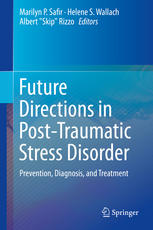

Most ebook files are in PDF format, so you can easily read them using various software such as Foxit Reader or directly on the Google Chrome browser.
Some ebook files are released by publishers in other formats such as .awz, .mobi, .epub, .fb2, etc. You may need to install specific software to read these formats on mobile/PC, such as Calibre.
Please read the tutorial at this link: https://ebookbell.com/faq
We offer FREE conversion to the popular formats you request; however, this may take some time. Therefore, right after payment, please email us, and we will try to provide the service as quickly as possible.
For some exceptional file formats or broken links (if any), please refrain from opening any disputes. Instead, email us first, and we will try to assist within a maximum of 6 hours.
EbookBell Team

4.8
54 reviewsOurs is an era of increasing tension, both global and local. And not surprisingly, PTSD is recognized not only in combat veterans and active military personnel, but also disaster and assault survivors across the demographic spectrum. As current events from mass shootings to the debate over trigger warnings keep the issue in the public eye, the disorder remains a steady concern among researchers and practitioners.
Future Directions in Post-Traumatic Stress Disorder presents findings and ideas with the potential to influence both our conceptualization of the condition and the techniques used to address it. A multidisciplinary panel of experts offers new analyses of risk and resilience factors, individual and group approaches to prevention, the evolving process of diagnosis, and effective treatment and delivery. Chapters on treatment allow readers to compare widely-used prolonged exposure and VR methods with innovative applications of cognitive processing therapy and interpersonal therapy. And an especially compelling contribution surveys empirically-based programs relating to what for many is the emblematic trauma of our time, the events of September 11, 2001. Included in the coverage:
While millions experience trauma, relatively few develop chronic PTSD. Future Directions in Post-Traumatic Stress Disorder is a practical and proactive reference for the health and clinical psychologists, sociologists, psychiatrists, and primary care physicians dedicated to further decreasing those numbers.